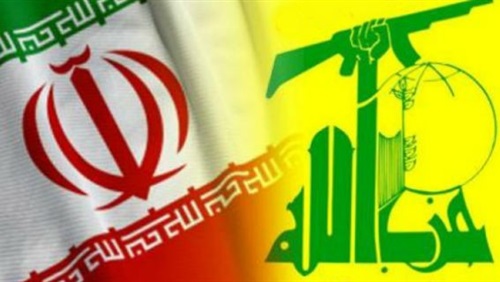Report: Iran Boosts Arming Allies in the Region Despite Losses and Changes Smuggling Methods

A report by the American newspaper "The Wall Street Journal" revealed Iran's direction to compensate for the military losses of its allies by intensifying arms smuggling operations to Hezbollah in Lebanon and the Houthis in Yemen, despite Israeli and American strikes that recently targeted its military leaders and nuclear facilities.
The newspaper pointed out that Tehran has changed its smuggling methods, now relying on small cars to transport weapons to Hezbollah through Syria, after previously using large trucks in an attempt to avoid detection. It continues to send missiles and military equipment from Iraq to Syria, according to informed sources.
Michael Knights, an expert on Iran-backed militias at the Washington Institute for Near East Policy, stated: "Iran is rebuilding its presence in Syria and Lebanon by smuggling missiles to Hezbollah and weapons from Iraq to Syria".
In a related context, Syrian authorities announced the seizure of arms shipments at the borders with Iraq and Lebanon, including Grad rockets intended for missile launch systems. Meanwhile, the Lebanese army confiscated anti-tank missiles of Russian origin that entered through the Syrian borders, which are favored weapons of Hezbollah.
Michael Kardish, a former explosives unit expert in the Israeli police, affirmed that there has been a "noticeable escalation in smuggling attempts in recent months, whether through or from Syria, towards Hezbollah in Lebanon".
This comes after the party was forced to accept a ceasefire last year following a comprehensive Israeli campaign that weakened its military arsenal and resulted in the deaths of several of its leaders, including Hassan Nasrallah and Hashem Safieddine, who were killed in Israeli airstrikes near Beirut.
In Yemen, the Yemeni government announced the seizure of a large arms shipment destined for the Houthis on the Red Sea coast, including cruise missiles, anti-ship and anti-aircraft missiles, and drones, according to the US Central Command (CENTCOM).
Documents written in Persian, found during the inspection of the shipment in Djibouti, indicated that the weapons were of Iranian origin, including missile guidance camera manuals and quality certificates for missile components.
Mohammed Al-Basha, a security expert and founder of "Al-Basha Report", commented: "The timing and volume of this shipment indicate that Iran is moving quickly to replenish the depleted stocks for the Houthis due to American strikes", adding that the goal is to maintain the pace of attacks on Israel and maritime navigation.
On the other hand, Iranian Foreign Ministry spokesman, Ismail Qaani, denied these allegations, describing them as "baseless".